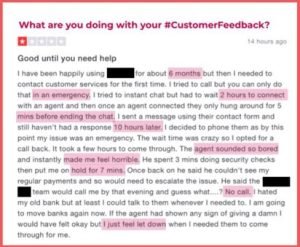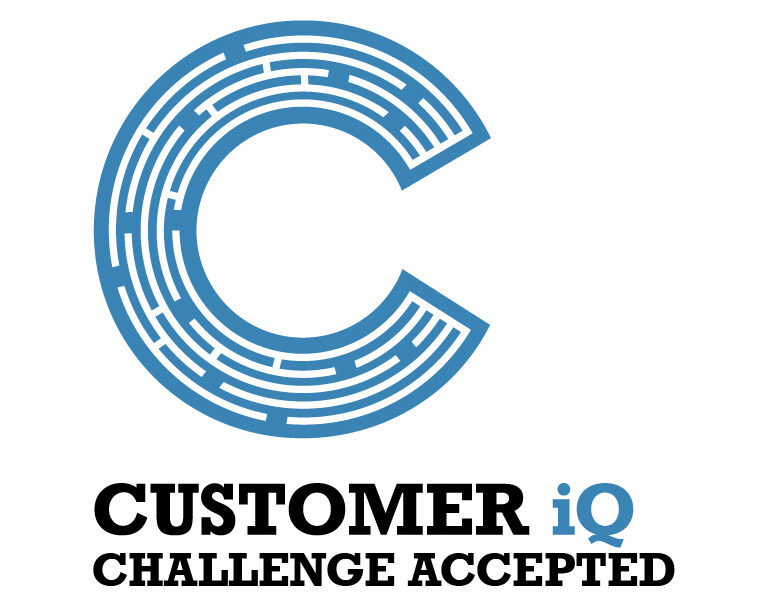Enjoying this content? Sign up to receive it in your inbox each week via our Contact page...
Apart from eat your lunch, steal your customers, recruit your best team-mates and generally try to run you out of business – what can competitors do for you?
(I think I’ve been watching too much Yellowstone or Succession lately).
From an insight point of view, your competitors have a lot to give if you know where to look and what you’re looking for…
Read time: 3.5 minutes
tl;dr: your competitors hold a potential goldmine of free insight into your market and their customers – you need to know what to look for and where to find it
Some of the benefits of using your competitors to help your business:
- Hone your positioning
- Understand (their) customers
And by doing so, uncover a wealth of new opportunities. But before all of that, you need to figure out who your competitors are.
Who are your competitors?
It might be tempting to think that you don’t have any competitors. Perhaps your product is so unique, you’ve niched into a market of one, you’re building products for the future.
Or you may be operating in a very competitive marketplace where the competition is very obvious.
Either way – you will have some element of competition for your target audience – obvious or maybe less obvious.
Let’s take the example of Customer IQ.
Customer IQ offers market research for startups (why I focus on startups is a topic for another day). Thinking laterally, our ‘competition’ is all of these:
- Research suppliers (who may also be working with startups)
- Research freelancers
- Consultants who serve startups
- Marketing agencies who offer research
- Blog articles and videos which explain how to do research
- Apathy
Apathy is probably the biggest competitor of all. The default behaviour of startup founders may be to not consider doing market research at all and rely on gut instinct to make big decisions.
Listing out all of your competitors – and thinking laterally about who they are – is a great first step.
Using competitors to hone your positioning
So now we have a list of competitors, we can use them to figure out and develop a clear positioning in the market.
Understanding which are your biggest competitors will help you to prioritise.
For example, I’ve suggested apathy is a big competitor for Customer IQ. To tackle apathy, I need to position my business more as an informer and educator. Providing content and services which help startup founders to better understand:
a) why research is important
b) easy steps they can take to get started
It might be that other businesses selling similar products and services are your biggest competitors. Analysis of these businesses, and how they position themselves, can really help you to find a compelling positioning and value proposition that stands out.
Spending time on competitor websites and reading their content, as well as signing up to their mailing list will help you to really understand how they are positioned. Of course, this takes time. Another – much quicker – way is to use some online tools such as:
My go-to tool for this would be TagCrowd. It creates very quick word clouds for analysing data such as open-ended survey responses. But it also does the same for websites. You enter the url and it instantly gives you a summary of the most frequent words and phrases used on that site.
Here’s an example of a research agency that I think of as a competitor to Customer IQ:

If I do this with a few other competitors, I will quickly understand how each one is similar/different to each other and to Customer IQ. But for speed, just picking out a few points from what I see here:
- An emphasis on ‘commercial’ words like: business, commercial, grow
- Technical terminology like ‘quantitative’ and ‘qualitative’
- No clear specialism, no obvious target audience
You get the idea. It’s very quick to do and will give you a broad understanding of your competitors without having to spend an age reading their content.
Using competitors to understand customers
Here I am suggesting you take a look at some customer review data. Here’s an example of a Trustpilot review of a challenger bank brand. I’ve gone straight to the 1-star reviews first to see where their problems may lie…

This particular example has given me lots of insights and ideas of how a challenger bank could be different, eg:
- Why no contact with customer services for the first 6 months? An opportunity to proactively contact new customers to help with their onboarding experience?
- 2 hours to connect with instant chat – this is definitely a way to differentiate
- Bored agents that “made me feel horrible” – an opportunity to make the customer service experience much better
Reading more reviews like this can generate a lot of ideas for your business.
This is a quick run through of some ways in which you can use your competitors to help you better understand your marketplace and improve your positioning and your offer to customers.
I hope this has been useful, please do get in touch if you’d like to discuss in more detail
Thanks for reading











